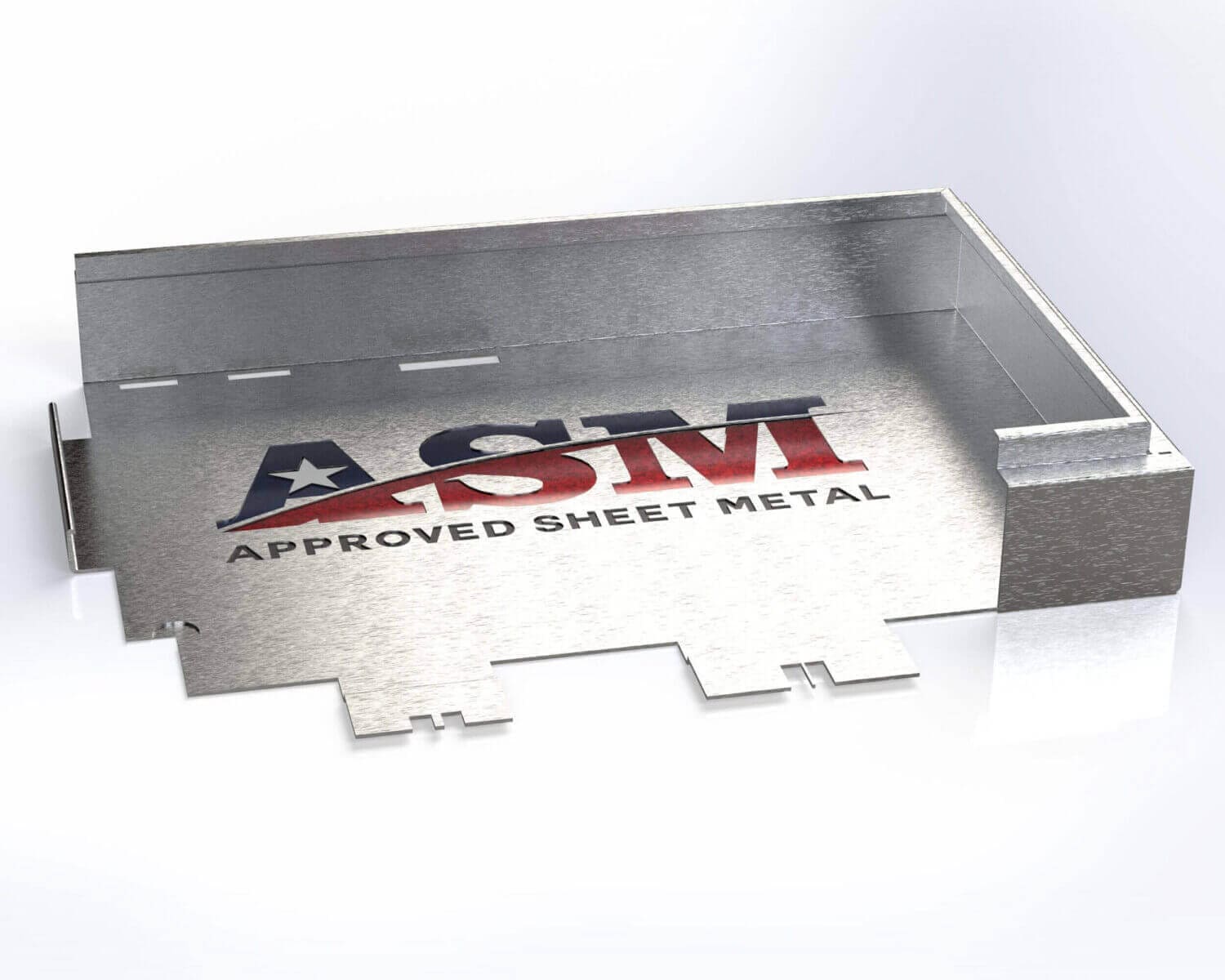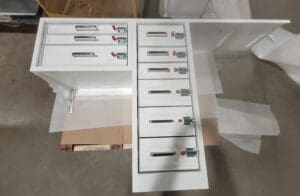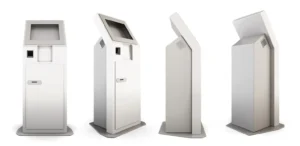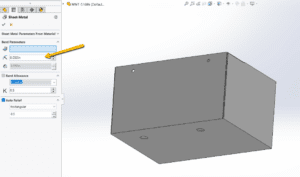Last updated on July 30th, 2024 at 10:02 am
With all the metal enclosures we fabricate at Approved Sheet Metal (ASM), it’s no surprise that we also fabricate a significant quantity of sheet metal fabricated covers.
Learn everything you need to know to design high-quality covers that fit and function perfectly.
Table of Contents
- 1 Fabricated Covers from Approved Sheet Metal
- 2 Top Materials for Fabricated Covers
- 3 Primary Uses for Sheet Metal Covers
- 4 How ASM Fabricates Sheet Metal Covers
- 5 Designing Sheet Metal Covers for Fabrication
- 6 Finishes for Sheet Metal Covers
- 7 Get Custom Sheet Metal Covers from ASM
- 8 Mastering Sheet Metal Fabricated Covers FAQ
- 8.0.1 What are the primary purposes of sheet metal covers fabricated by Approved Sheet Metal (ASM)?
- 8.0.2 What materials are commonly used for fabricating sheet metal covers at ASM?
- 8.0.3 What steps does ASM take to ensure the quality and fit of fabricated sheet metal covers?
- 8.0.4 What are some Design for Manufacturing (DFM) tips for fabricating sheet metal covers?
- 8.0.5 What finishing options does ASM offer for sheet metal covers?
Fabricated Covers from Approved Sheet Metal
Covers are most commonly designed as part of an assembly, along with a box or enclosure.
These sturdy, closeable containers are made to protect their contents from moisture, light, contaminants, electrical currents, and human contact. Some are even waterproof, with gasketing incorporated to prevent liquids from seeping in and causing damage.
Most covered enclosures include hardware like hinges or other fasteners; locks are especially popular for deterring interference and theft.
Top Materials for Fabricated Covers
When you leverage our sheet metal services to fabricate a cover (or covers), you’ll probably request one of these materials:
- Aluminum
- Stainless steel
- Plain steel
Primary Uses for Sheet Metal Covers
Precision sheet metal covers are used for many purposes throughout countless industries, but most of ASM’s covers are destined for applications in electronics or medical devices. As vertical doors or horizontal hatches, sheet metal covers help keep components separate, organized, and protected from environmental factors.
How ASM Fabricates Sheet Metal Covers
Precision sheet metal covers typically look very simple, but fabricating high-quality covers can require all our sheet metal services:
Designing Sheet Metal Covers for Fabrication
Before submitting a purchase order for fabricated covers, connect with the engineers at ASM and request a design review. We’ll make certain we can translate your design into high-quality sheet metal covers that fit perfectly with their associated enclosures. If we identify potential problems with any aspect of your design, we’ll collaborate directly with you to determine the best next steps and ensure exceptional results.
5 DFM tips for fabricating sheet metal covers
Follow these helpful Design for Manufacturing (DFM) tips:
- Design with our sheet metal shop in mind. Make the most of ASM’s specific tools and processes.
- Pick common materials, hardware, and finishes. Readily available items and processes result in lower costs and shorter lead times.
- Allow for tolerance stackup. Don’t make your tolerances so tight that the resulting stackup prevents the cover from fitting its enclosure or housing.
- Send your assembly in a single RFQ. If we receive separate orders for your sheet metal cover and its box, we won’t know the components are related. Send your assembly design files all at once, and we’ll take all the steps necessary to ensure a proper fit.
- Use ASM’s Engineer’s Toolbox. From reference charts to SOLIDWORKS tutorials to a CAD tooling library, we offer several valuable resources to help our customers quickly add formed features like embossments and louvers.
Finishes for Sheet Metal Covers
ASM provides numerous in-house and vendor-managed finishing options that may benefit your sheet metal cover. These finishes are among the most popular:
- Powder coating is our sheet metal shop’s most recommended painting method for fabricated parts. It’s fast, durable, and available in many colors.
- Plating (anodize and chromate) improves a metal’s resistance to corrosion and wear while maintaining electrical conductivity.
- Silk screening allows you to add graphics and other design elements to a cover.
- Wet paint is rarely the best choice for finishing sheet metal parts because the process is tedious, time-consuming, and expensive—but if you need it, we’ve got you covered.
Let us know the aesthetic you’re going for, and we’ll help you select the finishing method that best supports your application while meeting your project timeline and budgetary requirements.
Get Custom Sheet Metal Covers from ASM
Our team has extensive experience fabricating covers with various dimensions and styles. Whether we’re making your full assembly or covers only, we’ll deliver the superior sheet metal services and spot-on assembly fit you’ve come to expect from ASM parts and projects.
Mastering Sheet Metal Fabricated Covers FAQ
Sheet metal covers are designed to protect their contents from moisture, light, contaminants, electrical currents, and human contact. They are used to keep components separate, organized, and protected from environmental factors, commonly in electronics or medical devices.
The top materials used for fabricating sheet metal covers at ASM include aluminum, stainless steel, and plain steel. These materials are chosen based on the specific requirements of the application.
ASM utilizes a comprehensive fabrication process that includes laser cutting, punching, forming, welding, grinding, hardware assembly, and finishing. Additionally, ASM engineers review designs to ensure they can be translated into high-quality covers that fit perfectly with their associated enclosures.
This is FAQ answer. Click to edit this text. Lorem ipsum dolor sit amet, consectetur adipiscing elit. Ut elit tellus, luctus nec ullamcorper mattis, pulvinar dapibus leo.
Key DFM tips include:
- Designing with ASM's specific tools and processes in mind.
- Choosing common materials, hardware, and finishes to lower costs and shorten lead times.
- Allowing for tolerance stackup to ensure proper fit.
- Sending assembly designs in a single RFQ for coordinated fabrication.
- Using ASM's Engineer's Toolbox for resources like reference charts and CAD tooling libraries.
ASM offers several finishing options, including powder coating for durability and color variety, plating (anodize and chromate) for corrosion and wear resistance, silk screening for adding graphics, and wet paint, although it is less common due to its tedious and expensive process. These finishes help achieve the desired aesthetic and meet project requirements.





